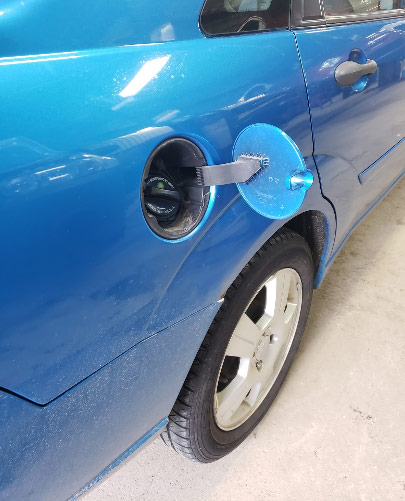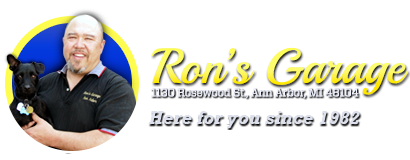03 May Should You Top Off your Gas?
We’ve all been there, deciding whether or not to pump a bit extra to round off the dollar amount. Maybe you’ve topped off your gas thinking you’ll get a bit more in your tank. However, the short answer is no. Overfilling your gas tank has a negative impact on your vehicle, your wallet, and the environment.
What happens when you fill your vehicle with gas?
Gasoline is a unique property with both liquid and gas states. Believe it or not, the outside temperature can affect gasoline, causing it to expand and contract. Gas Stations store gas underground in large tanks where it always cooler, so after pumping the gas into your vehicle, the gas will warm up and expand.
The size of your gas tank depends on the type of vehicle you drive, but your vehicle is only meant to hold a limited amount of liquid gasoline. All vehicles are equipped with a separate storage container, which is referred to as a charcoal canister, also known as a carbon filter, which holds fuel vapors. As you pump gas, it flows into your gas tank. Your vehicle’s sensors will automatically trigger the gas pump to shut off when the tank becomes full, leaving enough room for your gas to expand as it comes above ground and warms up in your vehicle.

Mechanical Problems
Overfilling your gas tank can lead to several potential mechanical problems. It can alter your car’s performance by making it run inefficiently. Pressure can build which could spring a hazardous leak, or even potentially damage the engine.
When “topping off” your gas tank, the extra gasoline flows right through to the charcoal canister. Since the carbon filter is designed only for vapor, when liquid gasoline enters the canister, it can become saturated. A saturated carbon filter will be unable to absorb any more vapor and will impact its ability to purge properly. Not to mention that extra gas you just pumped isn’t even used.
What exactly is a carbon filter?
The carbon filter is meant to absorb fuel vapor when it evaporates inside the gas tank. The vapor is trapped by the charcoal and released back into the engine through the purge valve. Eventually, during the combustion process, the engine uses it for its mixture of fuel and air needed to run the vehicle.
When this carbon filter no longer functions as intended, it can cause your Check Engine Light to turn on indicating evap related codes. It can cause a power reduction to your vehicle, lower the fuel economy and hamper emission performance. You may notice a fuel odor, or even that your vehicle is flooding.
Personal Impacts
On a personal note, you may have noticed all of the signs posted at the gas station. They indicate that gasoline is toxic and harmful to breathe. Exposure to too much gasoline can cause dizziness, breathing problems, and headaches when inhaled. Large amounts can even cause death. It’s best not to get gasoline on your clothes and skin, so be sure to wash your hands after you pump!

Environmental Concerns
The most obvious concern when overfilling your gas tank is if the gas were to spill. It could leak into the ground potentially polluting the water or harming wildlife in the area. Since gas is a fire hazard, even a little spark could cause a huge fire. But what you may not know is that gasoline is toxic to the ozone layer as it releases benzene, which is known to be carcinogenic and flammable.
The Environmental Protection Agency requires all vehicles have a vapor recovery system, such as the charcoal canister. This is a safety precaution to ensure excess vapors stay inside the vehicle and not escape into the environment. If gas vapors are exposed to sunlight, the reaction is the leading cause of vehicle generated air pollution: smog. Smog causes poor air conditions, which is heavily prevalent in big cities.
All in all, topping off your gas tank doesn’t benefit you, your car, or the environment.
We would be glad to check your vehicle’s vapor recovery system for possible damage if your Check Engine Light comes on. Give us a call to set up your appointment at (734) 662-8379.


